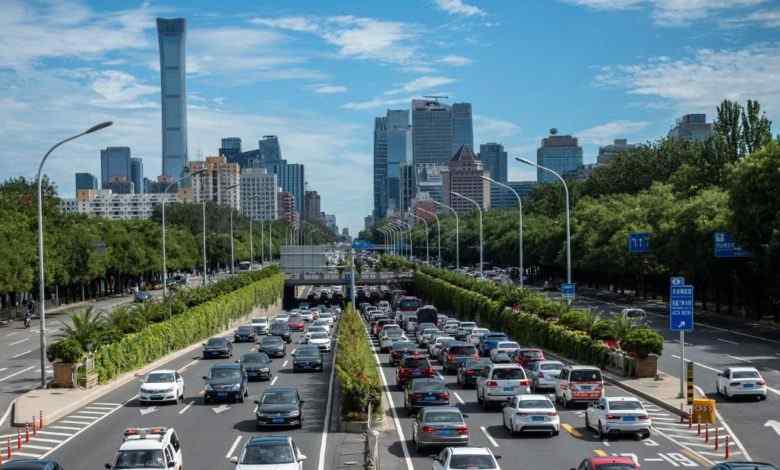Analysis: Beijing’s fight for cleaner air is a rare victory for public dissent

Now, its skies are mostly blue — a sign the Chinese capital is entering a new era of clean air, the country’s Minister of Ecology and Environment claimed last Wednesday.”The ‘Beijing blue’ has gradually become our new normal,” said Huang Runqiu, the minister, according to state-run tabloid Global Times, as the city recorded its best monthly air quality since records began in 2013.Though Chinese cities have long topped global rankings of the world’s worst air quality, they have shown steady improvement over the years. Beijing only recorded 10 days of heavy air pollution last year, Huang said — a drop of nearly 80% since 2015. Recent photos from Beijing show clear blue skies and summer sun, once a rarity in the city of approximately 21 million.The turnaround in Beijing’s air quality illustrates how successful the country’s anti-pollution campaign has been since it began in 2013 — the year of Beijing’s infamous “air-pocalypse,” when smog got so bad that levels of PM2.5, a microscopic pollutant, reached 900 micrograms per square meter, 90 times higher than the World Health Organization’s recommended daily level.The air-pocalypse attracted global media attention and forced the issue into China’s mainstream — so much so, that one enterprising local brewery even named a beer after it, promising discounts on smoggy days.For years, pollution in the capital had been euphemistically referred to as “fog,” but now, armed with new information on the dangerous effects of poor air quality, residents were no longer willing to tolerate days of labored breathing. “It wasn’t simply the irritating Beijing cough that was attacking residents daily — it was something much worse,” said Daniel Gardner, emeritus professor at Smith College and author of “Environmental Pollution in China: What Everyone Needs to Know.””Now, when they were coughing, it was a sign that they were taking in particulate matter that leads to morbidity and mortality,” he added. “And so, I think people now began to see that quality of air very differently in 2013.”A damaged vehicle is seen at the blast site of a suicide bomb attack targeting a motorcade carrying Chinese personnel in Pakistan’s southwest Balochistan province on Friday. Two Pakistani children were killed and four people were injured, including a Chinese national, according to Pakistani authorities. The Balochistan Liberation Army, a militant separatist group, has claimed responsibility for the attack. This is the second terrorist attack targeting Chinese nationals in Pakistan in recent weeks. In July, a suicide bomber attacked a bus carrying Chinese workers to a dam construction in northern Pakistan, killing 13 people, including 9 Chinese. Islamabad said the attack had been carried out by “the Pakistani Taliban out of Afghanistan.” China passes sweeping data privacy lawChina is getting even tougher on data privacy.The country recently passed sweeping new rules about the collection and use of personal data. The Personal Information Protection Law will take effect November 1, and prohibits “illegally collecting, using, processing, transmitting, disclosing and trading people’s personal information,” according to state-run Xinhua News Agency.Before this, China had no law in place specifically dealing with the collection and use of such data. Law enforcement had relied on legal provisions scattered across existing laws to handle cases related to data privacy.The full text of the law is not yet public, but Xinhua reported that, among other things, it “clarifies” rules governing the “processing” and “provision” of personal information across borders.News of the law comes as some Chinese tech firms, including ride-hailing company Didi, have been accused of mishandling user data in recent months. Shortly after Didi went public in the United States, Chinese regulators accused it of “illegally collecting and using personal information.” Beijing has cited risks that the misuse of data poses to national security as regulators crack down on companies that list overseas.– By Jill Disis and Steven JiangAround AsiaUS President Joe Biden on Friday announced his intention to nominate Rahm Emanuel as ambassador to Japan and Nicholas Burns as ambassador to China. Emanuel is a former mayor of Chicago, chief of staff to President Barack Obama, a senior adviser for President Bill Clinton and a member of Congress representing Illinois. Burns, a career diplomat and longtime foreign policy hand, has served presidents of both parties.An Afghan mother delivered a baby girl just after touching down at Ramstein Air Base in Germany Saturday aboard a US military evacuation flight, the US Air Force said on its social media.Australian Prime Minister Scott Morrison hinted at an end to the country’s zero Covid-19 infections strategy in an opinion piece published Sunday, warning Australians to expect a rise in infections as restrictions relax.




